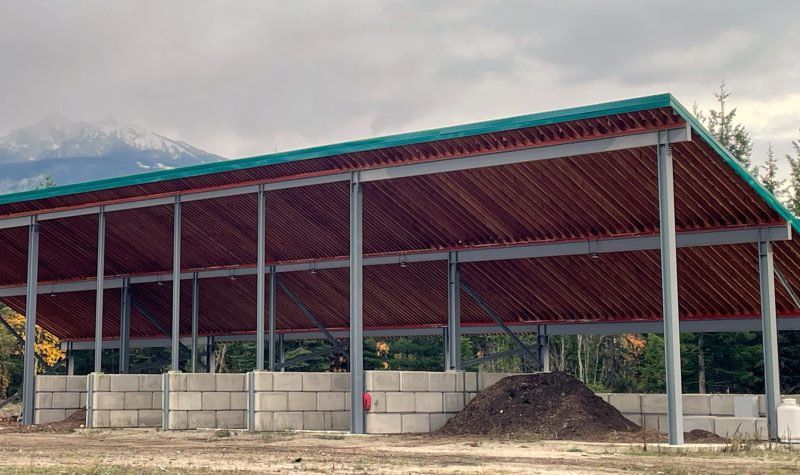An enterprising person in Revelstoke could start a business hauling compost to the Columbia Shuswap Regional District's composting facility at the landfill. That was one of the ideas to come out of the Revelstoke Chamber of Commerce's coffee connection event on commercial composting, held Oct. 19 in the Chamber lobby overlooking Victoria Road.
The facility opened last November. Residents and businesses can drop off compost, and the company Waste Management started hauling in August compost from businesses in the community.
Waste Management, a corporation out of Texas, charges high fees to business to haul their compost. There is currently no hauling options for residents in Revelstoke, and no curb side pick-up service as there is for garbage and recycling.
Graham Casselman, the waste reduction coordinator for the CSRD, said that despite the cost, about 10 tonnes of waste from businesses have been hauled out to the facility since then. "Hopefully we'll get more uptick in the next few months," he said in an interview after the event.
"It is pretty good uptick from residents who are using the self haul, as well as businesses," Casselman said.
The minimum fee for drop off is $10.
Casselman says residents may want to compost at the facility rather than their backyards because the facility accepts paper towel, egg cartons as well as bones, meat and dairy product waste.
The Revelstoke Local Food Initiative hired someone to be a compost coordinator, to work with businesses to help them implement a system for composting food waste and getting it to the facility at the landfill. That position is funded by the CSRD. The person was not at the Chamber event, but will be available to speak to Stoke FM about their role in the coming weeks.
Food recovery and pickup is organized by Community Connections, which uses two 60-gallon bins from Waste Management for compost. They coordinate pickups in the alley behind their offices at 416 2nd St. W. three days a week. They estimate it costs $200 to $250 a month to pay the company to haul the waste to the facility. They would like to see a local pickup option at a lower cost.
The food recovery program picks up food that grocery stores in town would otherwise throw out, and sort through it to save food that can still be used to serve at the food bank. They also accept drop-off from other businesses.
But Austin Luciow, who's a city councillor and runs the community kitchen, says that they've become the thrift store of food recovery. That's because they're noticing the quantity of drop offs increasing, but the quality is decreasing—businesses are dropping off food waste to them instead of composting it themselves.
Hannah Whitney, the food recovery coordinator, says staff and volunteers have noticed there is more food to sort through. She said they still need donations of food, but it has to be of high enough quality to use at the food bank.
More affordable waste hauling options for businesses would help to alleviate this problem.
There were several city councillors at the event, including Tim Stapenhurst who acknowledged the public desire for a compost curbside pick-up service. This was mentioned in the city's 2023 budget package, but didn't have a line item. Stapenhurst speculated that it would cost roughly $3 million to put in place a program like that. It hasn't gone before council yet.
Click below to listen to the full story.


